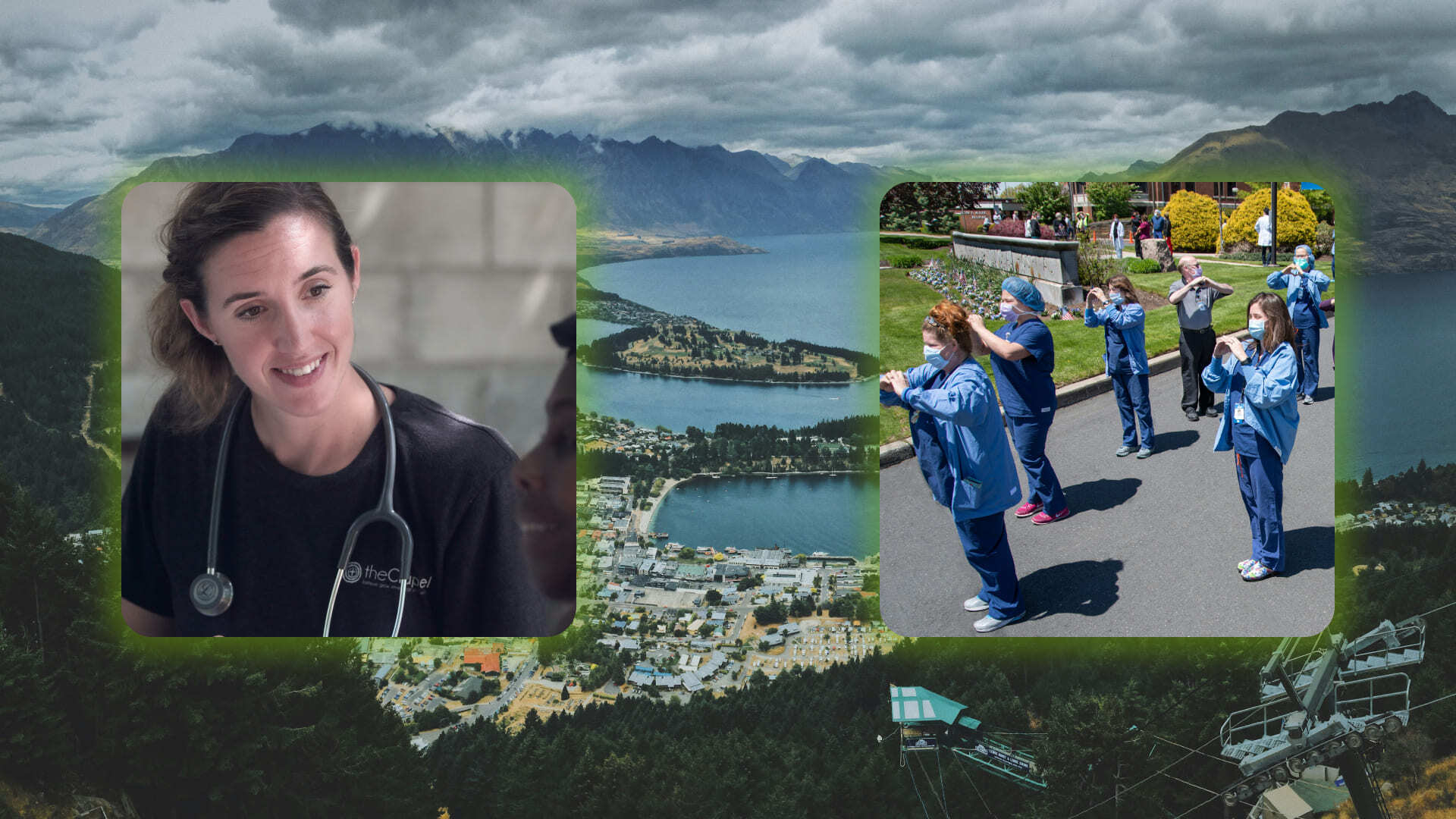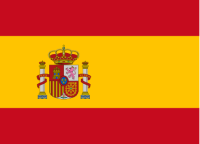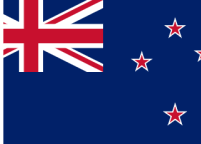I. Introduction
New Zealand’s healthcare system is a cornerstone of its society, providing comprehensive care to its population through public and private services. The country is known for its high standards of healthcare, innovative approaches to medical treatment, and a strong focus on public health and well-being.
New Zealand has a mixed public/private healthcare model. Each sector offers high standards of care. The public system is much larger, accounting for over 80% of healthcare spending.
We have around 220 hospitals and 20 Districts managing public healthcare in different regions.
With such an extensive healthcare system, there are opportunities for healthcare professionals to cover every discipline or speciality.
Overview of the Healthcare Industry in New Zealand
- New Zealand spends approximately 10% of its GDP on healthcare, which is on par with the OECD average.
- The country boasts a life expectancy of around 82 years, reflecting the high quality of healthcare services available.
- Over 20 District Health Boards (DHBs) are responsible for providing or funding health services in their regional areas, facilitating tailored healthcare solutions to meet local needs.
An international workforce

You will feel in the right place working in a New Zealand hospital or medical practice. For example, over 40% of the 17,000 doctors registered with the New Zealand Medical Council in 2019 were international medical graduates. Amongst practising nurses, 27% were internationally qualified.
Importance of Healthcare Professionals in New Zealand’s Society
Healthcare professionals are the backbone of New Zealand’s healthcare system, ensuring the delivery of quality care to all citizens and residents. They play a pivotal role in treating illnesses and injuries and in preventive care, public health initiatives, and health education, significantly contributing to the overall well-being and quality of life of the population. Key statistics highlight:
- The increasing requirement for healthcare personnel is evident, with forecasts suggesting a significant surge in demand for additional nurses, general practitioners, and specialists over the next decade. This surge is essential to adequately address the healthcare requirements of an expanding and ageing populace.
- Healthcare workers are essential for making sure everyone gets good healthcare. There are plans to help Maori and Pacific Island people get better healthcare by ensuring healthcare workers understand their culture. Settings.
II. Healthcare Education and Training in New Zealand

A. Undergraduate Courses
New Zealand’s undergraduate healthcare education strategy is tailored to align with both national and global healthcare benchmarks. This ensures that students embarking on careers in the healthcare sector receive a robust educational foundation.
- MBChB (Bachelor of Medicine and Bachelor of Surgery): Annually, New Zealand universities admit a limited number of students into this program, maintaining a competitive selection process. Approximately 300 students are accepted each year across the country, with a significant emphasis on practical clinical training in the later years.
International student intake is limited due to the high demand and rigorous selection criteria.
- Bachelor of Nursing: New Zealand produces over 1,500 nursing graduates annually. The course integrates practical placements, which account for about 50% of the program, ensuring that graduates are ready for the workforce.
Nursing programs are more accommodating, with no strict caps on international student admissions. However, competition remains high, and students must meet academic and English language proficiency requirements. For details about Nursing, look at our nursing guide.
- Bachelor of Health Sciences: Enrollment numbers have been steadily increasing, with a notable interest in health informatics and environmental health due to the growing emphasis on digital health solutions and sustainability in healthcare.
Like nursing, these programs have more flexible intake numbers for international students but still require meeting academic and language standards.
- Dental Studies: Approximately 100 dental graduates are produced annually in New Zealand, contributing to oral health services and research. The student-to-teacher ratio is kept low to ensure high-quality training and education.
- Allied Health Courses: Courses like physiotherapy, pharmacy, and radiography have seen a steady increase in enrollment, reflecting the growing demand for allied health professionals. For instance, the number of pharmacy graduates has been around 200 annually, addressing community and hospital pharmacy needs.
B. Postgraduate Courses
Postgraduate healthcare education in New Zealand focuses on specialization, research, and leadership within the healthcare sector.
- Master’s Degrees: There’s a growing trend towards specialization, with an increase in enrolment in Master of Public Health programs, reflecting the global emphasis on public health preparedness and response.
- Most postgraduate programs have no fixed quotas for international students, making these courses more accessible.
- The selection criteria for international students include assessment of their academic achievements, research skills, and, in certain instances, professional background.
- Doctoral Degrees (PhD): Annually, New Zealand universities award approximately 50 PhD degrees in medical and health sciences, contributing to the global healthcare research body.
- Postgraduate Diplomas and Certificates: These programs have seen a surge in interest, particularly in areas like emergency medicine and mental health, in response to current healthcare challenges.
C. Vocational and Technical Training
Technical roles are essential to the functioning of New Zealand’s healthcare system, with vocational training programs crucial in preparing skilled professionals.
- Medical Laboratory Technicians: The demand for laboratory technicians has grown by approximately 10% over the last five years, highlighting the importance of diagnostic services in healthcare.
- Dental Assistants: There’s a consistent need for dental assistants, with training programs producing around 200 graduates annually to support dental care services.
D. Licensing and Registration

Regulatory entities have a pivotal function in upholding the calibre and norms of healthcare practitioners within New Zealand.
- Medical Council of New Zealand: The Medical Council of New Zealand supervises over 17,000 registered practitioners, annually registering more than 1,500 new doctors, showcasing an increasing influx of domestically and internationally trained physicians.
Remarkably, over 40 per cent of these practitioners have received their training overseas, originating from over 100 different countries, highlighting the diverse and global talent contributing to New Zealand’s healthcare sector.
- Nursing Council of New Zealand: Regulates over 55,000 nurses, with the profession experiencing a growth rate of approximately 3% per year, reflecting the critical role of nurses in the healthcare system.
E. Admission Process for International Students
- Application: International students must apply directly to the institution or through an authorized agent. Applications should include academic transcripts, proof of English language proficiency (e.g., IELTS, TOEFL scores), and sometimes, letters of recommendation and personal statements.
- Meet the Requirements: Besides academic requirements, international applicants must meet health, character, and English language requirements. Some courses may require interviews or additional tests.
- Visa Application: Once accepted, students must apply for a student visa, providing evidence of tuition fee payment, insurance, and living expenses.
- Preparation and Arrival: International students are advised to participate in orientation programs offered by institutions to familiarize themselves with New Zealand’s academic system and culture.
Employment as a healthcare professional in New Zealand presents an exclusive combination of career prospects, exceptional living standards, and a welcoming atmosphere for newcomers. Below is a detailed overview of settlement, cultural adaptation, and the benefits of the New Zealand lifestyle for healthcare professionals.
III. Career Opportunities for Immigrants in the New Zealand Healthcare Sector

The New Zealand healthcare sector offers many career opportunities for immigrants, showcasing a dynamic environment that values skilled professionals across various specialities. From frontline hospital roles to research and academia, the landscape is ripe with potential for those looking to contribute to a progressive healthcare system.
A. Hospital-based Careers
Doctors, Nurses, and Surgeons: These critical roles form the backbone of hospital operations in New Zealand. The country’s health system employs over 16,000 doctors, with a substantial percentage comprising internationally trained professionals. Nurses, too, are in high demand, with the Nursing Council of New Zealand reporting over 52,000 active nurses, reflecting the sector’s reliance on a diverse workforce.
Specialized Roles: Specialties such as anesthesiology and radiology see consistent demand driven by the need for advanced diagnostic and treatment services. For instance, the number of practising anesthesiologists and radiologists has increased year-on-year, mirroring global healthcare trends towards specialized care.
B. Primary Care and Community Health
General Practitioners (GPs): With a focus on accessible and comprehensive care, New Zealand’s primary care system is underpinned by GPs, especially in rural and underserved areas. The government’s targeted initiatives aim to bolster the GP workforce, offering incentives for practice in these regions.
Community Health Workers: Essential in bridging healthcare services and community needs, these professionals are pivotal in New Zealand’s healthcare outreach, especially in indigenous and remote communities. Their roles are multifaceted, ranging from health promotion to disease prevention.
Mental Health Professionals: New Zealand is expanding its mental health services, reflecting a broader global recognition of the importance of mental health. This expansion translates into increased demand for psychiatrists, psychologists, and support staff, with the government allocating significant resources to mental health initiatives.
C. Allied Health Professions
Physiotherapists, Pharmacists, Occupational Therapists: Allied health professionals are crucial in delivering comprehensive care. New Zealand’s Long Term Skill Shortage List frequently features these roles, indicating ongoing opportunities for immigrants with these specializations. The demand is particularly pronounced in areas complementing the ageing population’s needs and rehabilitation services.
D. Research and Academia
Medical Research: New Zealand offers a fertile ground for medical research, with institutions like the Health Research Council providing funding and support for innovative health studies. Research outputs contribute significantly to both national health strategies and global health knowledge.
Teaching Roles: The academic sector in New Zealand thrives on diversity, with universities and colleges offering positions in healthcare education. These roles involve teaching and participation in research projects, policy development, and clinical training programs.
E. Healthcare Management and Administration
The administrative backbone of New Zealand’s healthcare system relies on professionals skilled in management, policy, informatics, and quality assurance. The healthcare system’s efficiency and effectiveness are significantly enhanced by the strategic direction and operational oversight provided by these roles.
In summary, New Zealand’s healthcare sector presents a rich tapestry of career opportunities for immigrants, underscored by data reflecting a growing and diversifying workforce.
The nation’s dedication to top-notch healthcare and appreciation for the significant input of global professionals render it an appealing destination for individuals aiming to progress in a nurturing and dynamic atmosphere.
IV. Living and Working in New Zealand

A. The Process of Settlement
Visa Types and Pathways for Healthcare Professionals:
New Zealand provides several visa pathways for healthcare professionals working and living in the country. The most common visa types include:
- Skilled Migrant Category: For individuals with the skills, qualifications, and experience New Zealand needs. Healthcare professionals, especially those in shortage areas, are often prioritized.
- Work to Residence: This pathway is for those offered long-term opportunities in a critical healthcare role.
- Specific Purpose or Event: For individuals coming to New Zealand for a particular purpose or event, such as medical professionals coming to work on a short-term basis.
The New Zealand government also offers the Long Term Skill Shortage List Work Visa, targeting professions with a sustained and ongoing shortage of skilled workers, including many roles in the healthcare sector.
The Importance of Securing a Job Offer:
For most work visa categories, having a job offer from a New Zealand employer is crucial. It strengthens the visa application and provides a clear pathway to long-term residency. Employers often assist with the visa process and may offer relocation support.
B. Cultural Adaptation and Integration
Understanding New Zealand’s Culture and Work Environment:
New Zealand’s work environment is known for its fairness, inclusivity, and respect for work-life balance. Healthcare professionals will find a collaborative atmosphere with an emphasis on teamwork and patient-centred care.
Understanding and adapting to the local culture, including the importance of the Māori culture and practices in healthcare, is essential for effective integration and professional success.
Support Systems for International Professionals:
New Zealand offers robust support systems for international professionals, including orientation programs, professional development courses, and networking opportunities. The New Zealand Medical Association and other professional bodies provide additional support, helping immigrants navigate the registration process, meet certification requirements, and integrate into their professional community.
C. Work-Life Balance and Quality of Life
Benefits of Living in New Zealand
New Zealand is celebrated for its stunning natural scenery, secure urban settings, and welcoming communities. Healthcare professionals benefit from competitive remuneration packages, with doctors and nurses in New Zealand enjoying salaries that reflect their skills and responsibilities. For instance, registered nurses can earn between NZ$52,000 and NZ$83,000 annually, depending on experience and specialization. In comparison, general practitioners may make upwards of NZ$125,000.
Healthcare, Education, and Family Life:
The public healthcare system is robust and efficient, offering high-quality care to all residents. New Zealand’s education system is equally impressive, with public schools providing free education from ages 5 to 19. The country’s emphasis on family well-being and community support makes it an ideal environment for raising children, contributing to its reputation as one of the best places in the world to live.
Access to Nature and Recreational Activities:
New Zealanders embrace a lifestyle deeply intertwined with nature, enjoying convenient access to beaches, mountains, and parks, which promotes a vibrant and active way of life. Engaging in outdoor pursuits like hiking, skiing, and water sports is widespread and easily accessible.
Community and Social Life:
New Zealand’s communities are diverse and welcoming, offering a strong sense of belonging and a supportive environment for newcomers. Various cultural groups and community organizations provide platforms for social interaction and cultural exchange, aiding integration.
Residing and practising as a healthcare professional in New Zealand provides an exceptional chance to pursue a fulfilling career while immersing oneself in the unparalleled beauty and quality of life offered by one of the globe’s most picturesque and hospitable nations.
The combination of professional opportunities, a supportive environment, and a high quality of life make New Zealand an attractive destination for healthcare professionals from around the globe.
V. Conclusion
This overview has highlighted New Zealand’s vibrant healthcare sector, emphasizing the opportunities for healthcare professionals, the impact of technology, and pathways for international talent.
The healthcare sector in New Zealand presents a promising career environment abundant with chances for advancement, creativity, and impactful engagement. With ongoing advancements and a commitment to addressing skill shortages, New Zealand’s healthcare future is promising and poised for further evolution and excellence.
VI. References & Resources
Contact Information for New Zealand’s Medical and Healthcare Regulatory Bodies:
- Medical Council of New Zealand: www.mcnz.org.nz
- Nursing Council of New Zealand: www.nursingcouncil.org.nz
- Pharmacy Council of New Zealand: www.pharmacycouncil.org.nz
- New Zealand Physiotherapy Board: www.physioboard.org.nz
Links to Visa and Immigration Resources for New Zealand:
- Immigration New Zealand: www.immigration.govt.nz
- New Zealand Now (Skill Shortage List Checker): www.newzealandnow.govt.nz/work-in-nz/nz-jobs-industries/healthcare-jobs
- Long-Term Skill Shortage List Work Visa: www.immigration.govt.nz/new-zealand-visas/options/work/explore-work-visa-options
This collection of resources and further reading offers a starting point for those considering a healthcare career in New Zealand, providing essential information on education, regulation, and immigration pathways.
About ICL Immigration
ICL Immigration, based in Auckland, is an established licensed immigration advisor firm with over 20 years of experience and a remarkable 97% approval rate. We’ve helped over 1,000 immigrants realise their New Zealand settlement dreams.
Our consultancy plays a pivotal role in turning these opportunities into realities. We offer end-to-end support, from choosing suitable courses, navigating the visa application process, assisting in registration with the New Zealand Nursing Council, and even transitioning to resident visas post-graduation.
Our pricing is flat and transparent, and our expertise ensures a seamless journey towards your new life in New Zealand.











